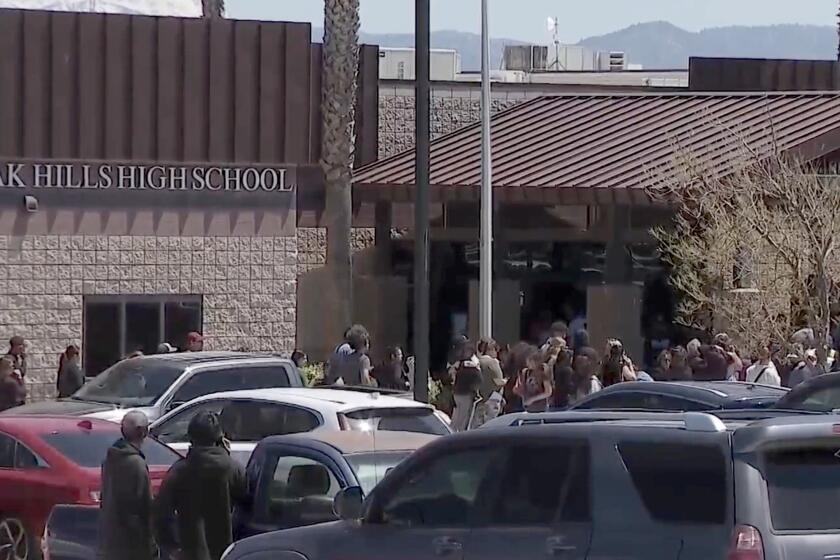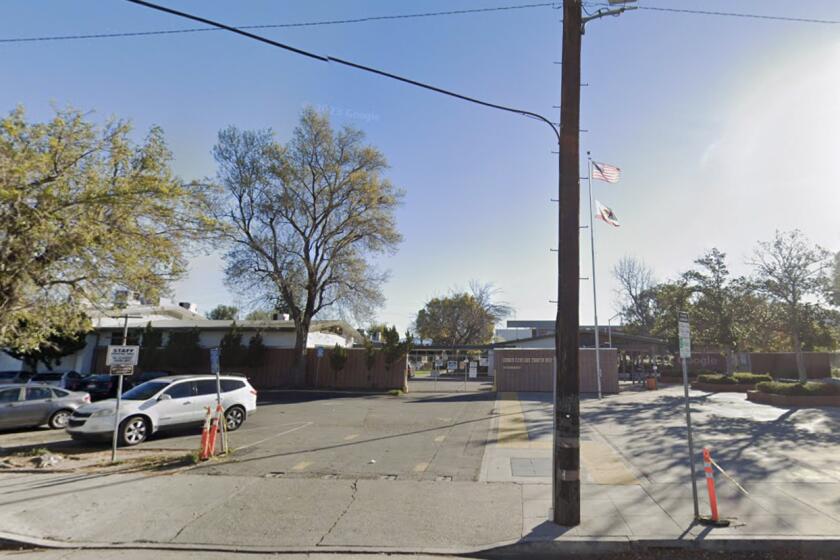Shame surrounding campus rape cases shades truth
The terrain around the subject of sexual violence on college campuses seems a bit muddier this week because of the uproar over a recent Rolling Stone article about a University of Virginia student who said she was gang-raped two years ago in a fraternity house.
It was a horrifying story, vividly told — but so inadequately reported and vetted that it’s no longer clear whether the attack happened or what it may have involved.
The young woman, called “Jackie” in the story, had insisted not only that her identity not be revealed, but that the reporter not contact any of the seven young men she accused of raping her; some were classmates or co-workers.
Her account of the brutal attack stirred outrage among readers. But a closer look by the Washington Post found enough discrepancies that Rolling Stone last week issued a backhanded apology — one that, in essence, blamed Jackie for misleading the reporter.
That too sparked outrage and forced the magazine to rewrite its mea culpa: Editors “should have worked harder to convince [Jackie] that the truth would have been better served by getting the other side of the story.”
But this is about more than journalistic failures. At the heart of the controversy are the fears of victimized women and the lengths we are willing to go to support them: We promise not to question your account, and no one will know who you are.
We tiptoe around the issue of anonymity because no one wants to magnify an assault survivor’s trauma.
But the very idea that shame attaches to the victim keeps us from forcefully tackling the sexual assault problem — and shifting the stigma to the attacker, which is where it belongs.
::
California has been a leader in trying to change what’s been called the “rape culture” on campuses. We were the first state to require colleges and universities to adopt policies that require “affirmative consent” from all parties in sexual encounters.
Several local campuses — including UCLA, USC and Occidental College — are among dozens of schools around the country now being investigated by federal authorities for their handling of sexual assault allegations.
Female students have long complained that university administrators don’t take allegations of sexual transgressions seriously enough. Now some young men accused of violations are fighting back, claiming the college discipline process is tilted against them.
Fairness is a tricky prospect. Even venerable Harvard University is struggling with that.
Victim advocates hailed its policy changes that lowered the bar for proving sexual misconduct. But dozens of law school faculty members have objected; the new procedures “lack the most basic elements of fairness and due process [and] are overwhelmingly stacked against the accused,” they said in a public statement.
That tension is difficult to resolve; there are so many legal, cultural and emotional issues that require tending to.
Some people worry that the Rolling Stone article, with its factual lapses, may hurt campus safety campaigns because young female victims will be less willing to come forward for fear they won’t be believed or that painful private incidents will be publicly scrutinized.
But the movement is bigger than one person and one story. On college campuses all over the country, young women are coming out of the shadows, demanding that we acknowledge their pain and punish their tormentors.
We need to applaud their courage.
::
I have to confess, I had doubts about its veracity when I first read the Rolling Stone story. Maybe it just seemed so horrific — a bloody three-hour gang rape, coordinated by the victim’s dinner date — that I didn’t want to believe it.
I got the side-eye from a friend when I mentioned those doubts. Whose side was I on? “But you have daughters,” she said.
I do. That’s precisely why it’s important to me that we don’t require orderly accounts of good-versus-evil or rely on dramatic stories anonymously told to grab our attention. The truth of sexual assault is often less tidy and more unflattering; fear of disapproval keeps victims offstage, hiding in the wings.
I don’t want to minimize what it feels like to be violated by someone you trust. But I wish we could be less concerned with making victims comfortable and more focused on empowering them by letting them know how much we value, love and support them.
When I was a college coed, suffering silently was the norm, self-loathing was the price that women paid and men were never punished.
Now college students are the vanguard in a new civil rights movement — one that grants women the right to move about as freely and safely as men.
That sort of culture change can’t be achieved with secret complaints.
Today’s young women may have to be willing to face the equivalent of my generation’s police dogs and fire hoses: to endure humiliation by having personal lives exposed, to risk retaliation by challenging forces they once feared, to be willing to put a face and a name to a very ugly subject.
To say “I was violated and here’s who did it. And I am not going to shut up until justice is done.”
Twitter: @sandybanksLAT
More to Read
Start your day right
Sign up for Essential California for news, features and recommendations from the L.A. Times and beyond in your inbox six days a week.
You may occasionally receive promotional content from the Los Angeles Times.







